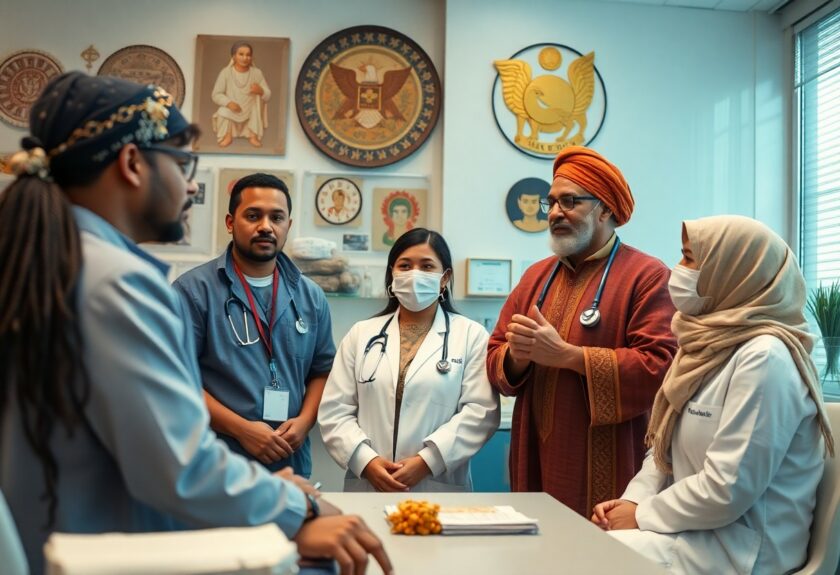Blue Zones are regions of the world where people live significantly longer and healthier lives than the global average. These areas have garnered attention from researchers and health enthusiasts alike, as they offer valuable insights into the factors contributing to longevity. You may have heard of places like Okinawa in Japan, Sardinia in Italy, Nicoya in Costa Rica, Ikaria in Greece, and Loma Linda in California.
Each of these locations boasts a unique culture and lifestyle, yet they share common characteristics that promote well-being and longevity. By studying these regions, you can uncover the secrets behind their inhabitants’ remarkable life spans and quality of life. The concept of Blue Zones was popularized by Dan Buettner, a National Geographic Fellow, who embarked on a quest to identify the commonalities among these extraordinary communities.
His research revealed that the people living in Blue Zones not only enjoy longer lives but also experience fewer chronic diseases and maintain a higher quality of life as they age. This phenomenon raises intriguing questions about the interplay between genetics, environment, and lifestyle choices. As you delve deeper into the characteristics of Blue Zones, you will discover that their inhabitants prioritize health and well-being through a combination of diet, social connections, physical activity, and mindfulness practices.
Understanding these elements can inspire you to adopt similar habits in your own life, potentially enhancing your longevity and overall happiness.
Diet and Nutrition in Blue Zones
When examining the diets of Blue Zone populations, you will find that they are predominantly plant-based, rich in whole foods, and low in processed ingredients. The traditional diets of these regions emphasize fruits, vegetables, legumes, whole grains, and healthy fats, while minimizing the consumption of meat and dairy products. For instance, the Okinawan diet is famous for its sweet potatoes, green leafy vegetables, and soy products like tofu.
In contrast, Sardinians often enjoy a variety of beans, whole grains, and locally sourced vegetables. This focus on nutrient-dense foods not only provides essential vitamins and minerals but also helps maintain a healthy weight and reduces the risk of chronic diseases such as heart disease and diabetes. Moreover, portion control plays a significant role in the dietary habits of Blue Zone residents.
Many cultures within these regions practice mindful eating, which involves savoring each bite and listening to their bodies’ hunger cues. For example, the Okinawans follow the principle of “Hara Hachi Bu,” which encourages them to eat until they are 80% full. This practice helps prevent overeating and promotes a balanced approach to nutrition.
Additionally, social gatherings often revolve around shared meals, fostering a sense of community and connection among family and friends. By adopting similar dietary principles and mindful eating practices in your own life, you can cultivate a healthier relationship with food while reaping the benefits of improved well-being.
Lifestyle and Social Connections in Blue Zones

The social fabric of Blue Zones is woven with strong connections among family members, friends, and community members. You will notice that individuals in these regions prioritize relationships and social interactions as essential components of their daily lives. In places like Ikaria, it is common for people to gather regularly for communal meals or celebrations, reinforcing bonds that contribute to emotional well-being.
These social networks provide support during challenging times and create a sense of belonging that is vital for mental health. The importance of social connections cannot be overstated; studies have shown that individuals with strong social ties tend to live longer and experience lower levels of stress. In addition to family ties, Blue Zone inhabitants often engage in activities that foster community involvement.
Whether it’s participating in local events or volunteering for community projects, these interactions help strengthen relationships and create a sense of purpose. For instance, in Loma Linda, members of the Seventh-day Adventist community often come together for worship services and group activities that promote a healthy lifestyle. This sense of purpose is crucial for longevity; having meaningful relationships and engaging in community activities can lead to increased happiness and reduced feelings of isolation.
By nurturing your own social connections and seeking out opportunities for community involvement, you can enhance your emotional well-being while potentially extending your lifespan.
Physical Activity and Exercise in Blue Zones
Physical activity is an integral part of daily life in Blue Zones, but it often takes on forms that are more natural and less structured than traditional exercise routines. You will find that residents engage in regular movement through their daily activities rather than adhering to strict workout schedules. For example, many Sardinians work in agriculture or engage in manual labor, which keeps them physically active throughout the day.
Similarly, Okinawans often walk or bike as their primary means of transportation, seamlessly incorporating movement into their routines. This approach to physical activity emphasizes consistency over intensity, allowing individuals to maintain their fitness levels without feeling overwhelmed by formal exercise regimens. Moreover, the types of physical activities practiced in Blue Zones are often enjoyable and social in nature.
Dancing, gardening, and participating in local sports are common pastimes that not only promote physical health but also foster social connections. In Ikaria, for instance, traditional dances are a popular way for people to come together while staying active. This blend of movement with social interaction creates a holistic approach to fitness that enhances both physical health and emotional well-being.
By finding ways to incorporate enjoyable physical activities into your daily life—whether through walking with friends or engaging in hobbies that require movement—you can cultivate a sustainable approach to fitness that aligns with the principles observed in Blue Zones.

Mindfulness and Stress Management in Blue Zones
Mindfulness practices play a significant role in the lives of individuals living in Blue Zones, contributing to their overall mental health and resilience against stress. You may notice that many inhabitants engage in daily rituals that promote relaxation and reflection. For example, Ikarians often take time for afternoon naps or enjoy leisurely conversations with friends over coffee.
These practices allow them to recharge mentally and emotionally while fostering a sense of community. The emphasis on slowing down and savoring life’s moments is a key aspect of their approach to stress management. In addition to these daily rituals, many Blue Zone populations incorporate spiritual or religious practices into their lives.
In Loma Linda, for instance, members of the Seventh-day Adventist Church prioritize prayer and meditation as essential components of their daily routines. This spiritual connection provides individuals with a sense of purpose and belonging while helping them navigate life’s challenges with greater ease. By adopting mindfulness techniques such as meditation or simply taking time to appreciate your surroundings, you can cultivate a greater sense of peace and resilience in your own life—mirroring the practices observed in these remarkable communities known for their longevity.
In conclusion, exploring the lifestyles of Blue Zone inhabitants reveals valuable lessons about health and longevity that you can apply to your own life. By embracing their dietary habits, nurturing social connections, incorporating natural physical activity into your routine, and practicing mindfulness techniques for stress management, you can create a holistic approach to well-being that may enhance both your lifespan and quality of life. The wisdom gleaned from these extraordinary communities serves as an invitation for you to reflect on your own habits and make positive changes that align with the principles observed in Blue Zones around the world.




